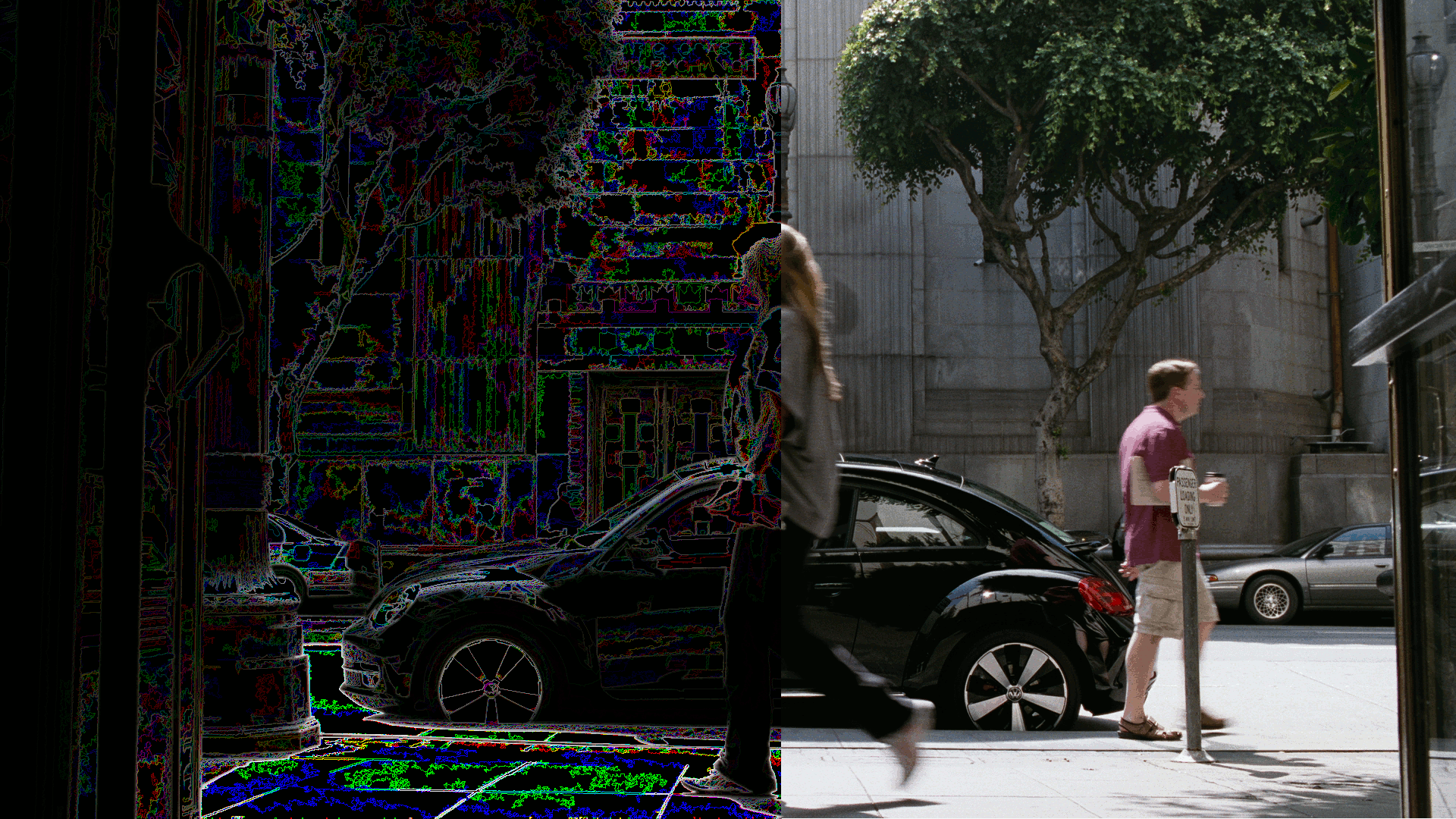
Researchers launching a new vector-based
video codec this week are claiming their work will lead to the death of the
pixel within the next five years
View the movie Download the paper
The team behind the project -
University of Bath, Root6 Technology, Smoke & Mirrors and
Ovation
Data Services - are now looking for industry buy-in to the research to
expand its potential applications.
The codec has been launched at this week's CVMP 9th European Conference on
Visual Media Production held at Vue Cinema in Leicester Square, London.
Digital pictures are built from a rectangular grid of coloured cells,
or pixels. The smaller and closer the pixels are together, the better
the quality of the image. Pixel-based movies need huge amounts of
data and have to be compressed, losing quality.
They are also difficult and time consuming to process.
The alternative, a vector-based format, presents the image using
contoured colours. Until now there has not been a way to
choose and fill between the contours at professional quality. The Bath team
has finally solved these problems.
A codec is a computer programme capable of encoding or decoding
a digital video stream. The researchers at Bath have developed
a new, highly sophisticated codec which is able to create and fill between
contours, overcoming the problems preventing their widespread use.
The result is a resolution-independent form of movie or image,
capable of the highest visual quality but without a pixel in sight.
Professor Phil Willis from the University of Bath said: "This is
a significant breakthrough which will revolutionise the way visual
media are produced.
"We already have some great company partners.
To accelerate the project we'll need more companies
from around the world to get involved. At the moment we're
focusing on applications in post-production and we are working
directly with leading companies in this area. However there
are clear applications in web, tablets and mobile which we
haven't explored in detail yet.
"Involvement of a greater variety of companies with
different interests will extend the project in many ways
and increase the potential applications of this
game-changing research."
Contact Details
Phil Willis
Department of Computer Science
University of Bath
Bath BA2 7AY
UK
Email: P.J.Willis@bath.ac.uk
 Researchers launching a new vector-based
video codec this week are claiming their work will lead to the death of the
pixel within the next five years
Researchers launching a new vector-based
video codec this week are claiming their work will lead to the death of the
pixel within the next five years